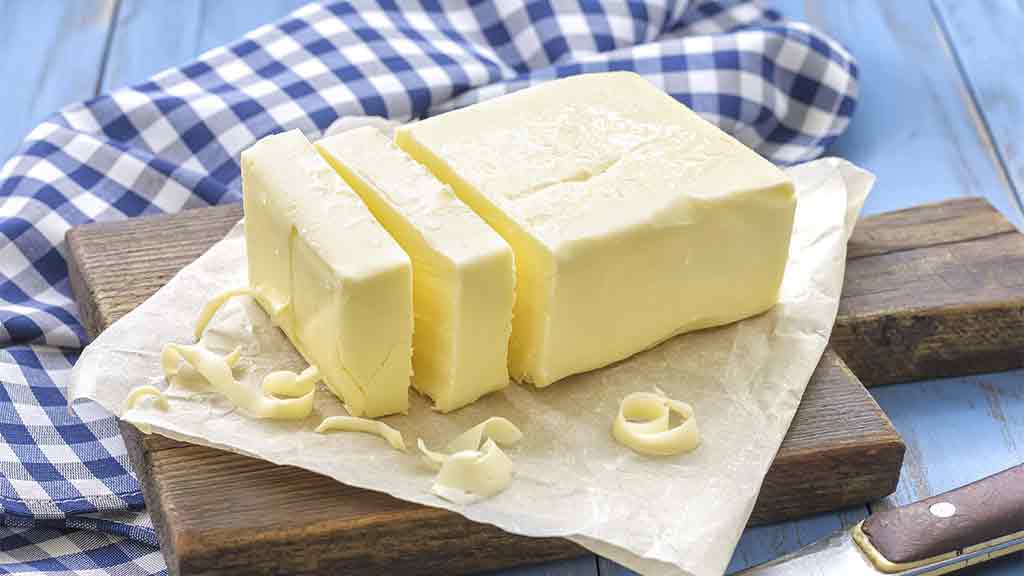In the world of culinary delights and nutritional needs, the quest for the best dairy-free butter alternatives is a topic of increasing interest. With the rise of plant-based diets, lactose intolerance, and dairy allergies, consumers are looking for options that don’t compromise on taste or texture. Dairy-free butters have come a long way, offering a range of flavors and applications that can satisfy even the most discerning palates. In this article, we explore some of the top contenders for the title of “Best Dairy-Free Butter.”
Coconut Oil-Based Butter
Coconut oil-based butters are renowned for their creamy texture and slight coconut flavor, which can enhance both sweet and savory dishes. Brands like Miyoko’s Creamery have mastered the art of creating a coconut oil blend that spreads and melts like traditional butter.
It’s perfect for baking, cooking, or just slathering on a piece of toast.
Olive Oil Spread
Olive oil spreads are a heart-healthy alternative, offering the rich taste of olive oil in a convenient spreadable form. Brands like Earth Balance offer versions that blend olive oil with other plant-based oils to achieve a buttery consistency, ideal for those who appreciate the distinct flavor of olive oil and are looking for a spread rich in monounsaturated fats.
Almond Butter
Though not a direct substitute for butter in every recipe, almond butter offers a nutty, rich flavor and a creamy texture that works well in certain baking recipes and as a spread. Its nutritional profile is also a plus, providing a good source of protein, healthy fats, and vitamins.
Avocado Butter
Avocado butter is a newer entry in the dairy-free butter market. Made from the rich flesh of avocados, this butter alternative is loaded with healthy fats, vitamins, and minerals. Its subtle flavor and creamy texture make it a versatile option for spreading, baking, and cooking.
Soy-Based Butter
Soy-based butters are one of the oldest dairy-free alternatives on the market. They are known for their ability to mimic the taste and texture of traditional butter very closely. Brands like Earth Balance have perfected a blend of oils that includes soybean, palm fruit, and canola, delivering a product that performs well in a variety of culinary applications.
Cashew Butter
Similar to almond butter, cashew butter offers a rich, creamy texture with a slightly sweeter taste. It’s an excellent source of healthy fats, proteins, and essential minerals. While not a direct substitute in every case, it’s a delicious alternative for spreads and some baking recipes.
Health and Environmental Considerations
When choosing a dairy-free butter, it’s important to consider not only taste and texture but also health and environmental impacts. Many of these alternatives offer the benefit of being lower in saturated fats and cholesterol-free, contributing to heart health. Additionally, plant-based options generally have a lower environmental footprint than dairy products, making them a more sustainable choice for those looking to reduce their impact on the planet.
The best dairy-free butter for you depends on your dietary needs, flavor preferences, and how you plan to use it. Whether you’re baking a vegan cake, frying up a savory dish, or simply enjoying a piece of toast, there’s a dairy-free butter out there that can meet your needs without sacrificing flavor. As the market continues to evolve, we can expect even more innovative and delicious options to emerge.
Emerging Trends in Dairy-Free Butters
As consumer demand for dairy-free options continues to grow, manufacturers are getting creative with their offerings, pushing the boundaries of what plant-based butters can be. Here are a few trends that are shaping the future of dairy-free butters:
Enhanced Nutritional Profiles
Manufacturers are increasingly focusing on not just replicating the taste and texture of dairy butter but also on enhancing the nutritional benefits of their products. This includes adding omega-3 fatty acids, vitamins like D and B12, and minerals such as calcium and iron to make dairy-free butters not just an alternative, but a healthier choice.
Sustainability and Ethical Sourcing
With a growing awareness of the environmental impact of food production, consumers are looking for products that not only avoid animal products but also prioritize sustainability. This includes sourcing ingredients from organic, non-GMO, and responsibly managed farms. Brands that emphasize ethical sourcing and environmental stewardship are gaining favor among eco-conscious consumers.
Gourmet Flavors
There’s a growing market for gourmet and artisanal dairy-free butters, featuring unique flavors such as truffle, garlic, and herbs. These products cater to food enthusiasts looking for high-quality, flavorful ingredients that can elevate their cooking and baking projects.
Allergen-Free Options
As awareness of food allergies and sensitivities grows, there’s an increasing demand for dairy-free butters that are also free from other common allergens like nuts, soy, and gluten. This opens up the market to a wider audience, ensuring that even those with multiple dietary restrictions have safe and delicious options.
Culinary Applications
Dairy-free butters are no longer just seen as a spread for bread. Manufacturers are highlighting the versatility of their products, showcasing how they can be used in a wide range of culinary applications, from sautéing and frying to baking and sauce-making. This versatility is appealing to home cooks and professional chefs alike, who are looking for plant-based ingredients that don’t compromise on performance.
The Role of Consumer Feedback
Consumer feedback is crucial in the development and refinement of dairy-free butters. Reviews and consumer input help manufacturers understand what works and what doesn’t, driving innovation in the sector. Social media and online forums have amplified consumer voices, making it easier for brands to gather insights and for consumers to find products that meet their specific needs.
Looking Forward
As the dairy-free market continues to grow, we can expect to see even more innovation in the field of dairy-free butters. With advancements in food science and technology, along with a deepening understanding of plant-based nutrition, the future of dairy-free butters looks promising. Whether for ethical, environmental, or health reasons, consumers now have an array of options that make the transition to dairy-free easier and more delicious than ever before.
In conclusion, the journey to finding the best dairy-free butter is highly personal and ever-evolving. With an array of options available, from coconut and olive oil spreads to gourmet flavored butters, there’s something for everyone. As consumer preferences continue to shift towards more sustainable and health-conscious choices, the dairy-free butter market is set to expand further, bringing new flavors, improved textures, and better nutritional profiles to kitchen tables around the world.




